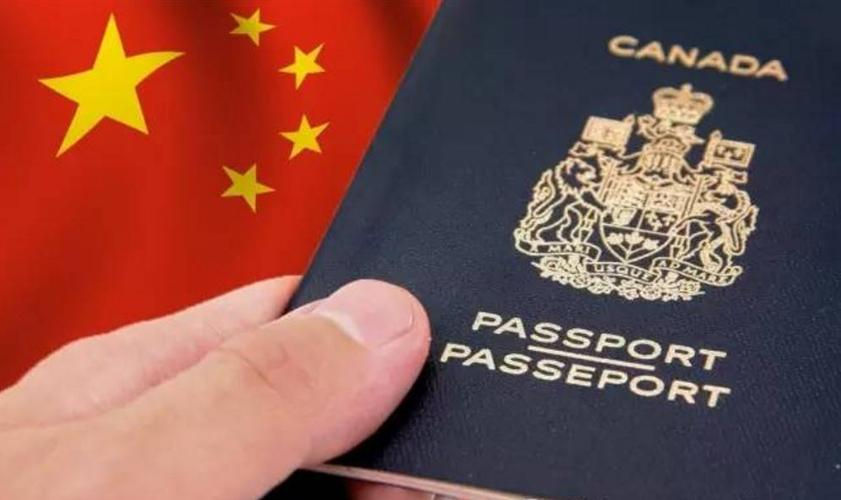Essential Guide to Short-Term Work Permits for Expats in China
- ExpertinChina

- Jul 30, 2025
- 3 min read
Updated: Aug 29, 2025
Navigating work permits can feel overwhelming for expats eager to work in China. However, securing a short-term work permit is essential for a smooth transition into the Chinese workforce. This guide offers essential information about short-term work permits, ensuring you're well-equipped for your journey in China.
What is a Short-Term Work Permit?
Short-term work permits in China are for foreign nationals looking to take on temporary jobs. These permits cater to professionals or students involved in internships, training, and similar short-term roles.
Typically, work durations fall between three months to one year based on the job contract. In 2022, nearly 35% of expats reported working in temporary roles, highlighting the importance of understanding this type of permit.
Types of Short-Term Work Permits
China classifies short-term work permits into two main categories, each serving specific purposes:
Type B Work Permit: This permit suits foreign professionals filling specialized roles that align with local demand, such as engineers or IT specialists. For instance, a software engineer might obtain this permit to work on a specific project for a tech company in Beijing.
Type C Work Permit: Easier to obtain, this permit is ideal for individuals in non-specialized roles, such as interns or seasonal workers. It is perfect for recent graduates participating in short-term internships or exchange programs.
Securing the appropriate permit provides compliance with Chinese labor laws and avoids unwanted legal troubles during your stay.
Eligibility Criteria
To qualify for a short-term work permit, you need to meet several criteria:
Educational Qualifications: You typically need a relevant degree. For example, a marketing position may require a degree in business or communications.
Work Experience: Relevant work experience boosts your chances. A graphic designer applying for a Type B permit may need two years of experience in the field.
Health Check: A health exam is necessary to confirm you are disease-free and fit for work.
Employment Opportunity: A job offer from a recognized employer in China is essential; this employer will sponsor your work permit application.
Meeting these criteria increases your likelihood of securing a short-term work visa in China.
Application Process
The application process may seem complex, but you can break it down into simple steps:
Job Offer: Obtain a valid job offer from a Chinese employer.
A valid passport
Recent passport-sized photos
Employment contract
Educational and professional certificates
Health check report
Documentation Preparation: Commonly required documents include:
Submission: Apply by submitting your documents to the local Human Resources and Social Security Bureau (HRSSB).
Approval: After review, the authorities will approve your application if all documents are in order.
Work Permit Issuance: Collect your work permit from the HRSSB. It's crucial to keep this document safe, as you'll need it for a residence permit.
By following these steps diligently, you can streamline your application process.
Duration and Renewal
Short-term work permits are valid for a set period, often between three to twelve months. If you want to extend your stay, start the renewal process a couple of months before your permit expires to avoid interruptions in your employment.
To renew, prepare similar documentation as your initial application, along with proof of continued employment.
Rights and Responsibilities
Holding a short-term work permit gives you specific rights and responsibilities:
Rights: You are entitled to fair wages, safe working conditions, breaks, and legal working hours. For instance, if your contract specifies a 40-hour workweek, your employer must adhere to this.
Responsibilities: You must comply with your permit terms, which include working only in the specified job. Additionally, staying informed about local laws and regulations is vital throughout your stay.
Understanding these rights and responsibilities can create a better experience while working in China.
Common Challenges
While the process can be smooth for some, several challenges can arise:
Documentation Issues: Incomplete applications or errors can lead to delays or rejections. Ensure all documents are accurate and complete.
Regulatory Changes: Changes in labor laws can impact your application. Stay informed about the latest regulations by checking official government websites.
Language Barrier: If you are not proficient in Mandarin, consider seeking assistance from local contacts or hiring someone knowledgeable about the process.
Being aware of these potential challenges can help you prepare better and minimize stress during your application.
Your Path to Working in China
Obtaining a short-term work permit in China doesn't have to be complicated. By understanding the types of permits, eligibility criteria, and the application process, you can approach this vital aspect of your move with confidence.
Stay updated on local regulations, and do not hesitate to seek help when needed. With careful planning, your short-term work experience in China can be rewarding and filled with opportunities for personal and professional growth.








Comments